Posted on 10th October 2022
Meet India’s famous herpetologist who discovered 50 frog species
By Punita Maheshwari
Dr Sonali Garg’s journey is full of night ventures into the dense forest of the Western Ghats, Northeast India, and the Andaman and Nicobar Islands. Outside the country, her scientific forays extend to Sri Lanka, Indonesia and Thailand
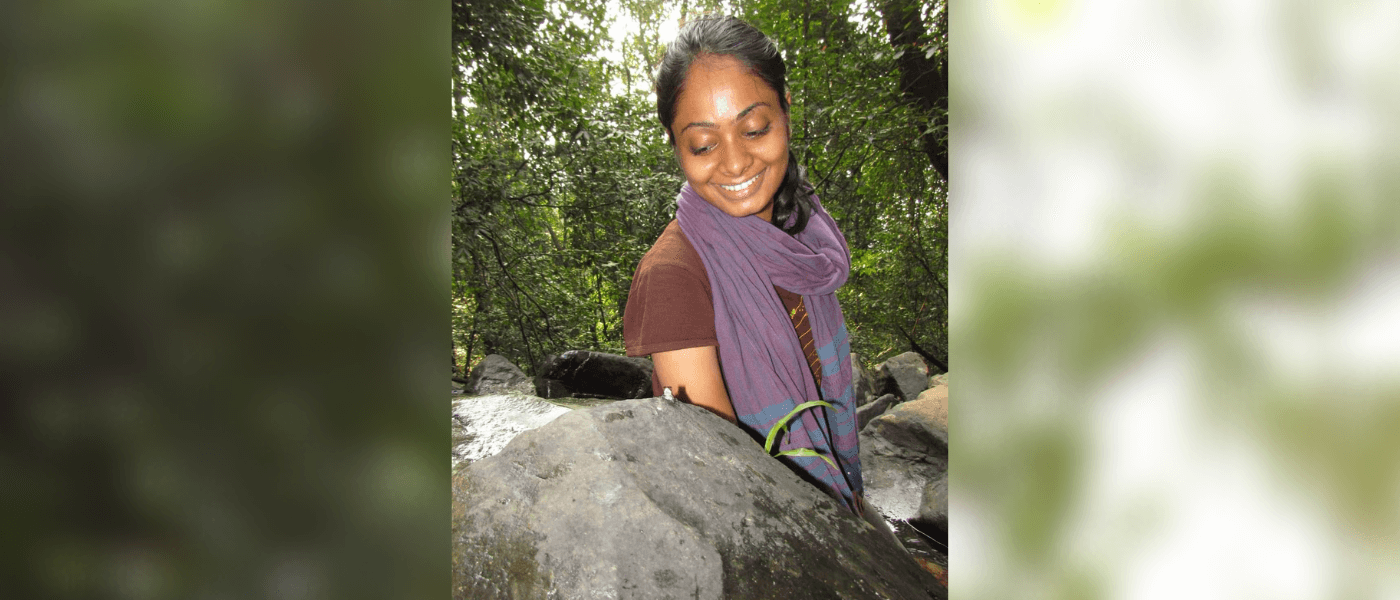
Direct from the field: Dr Sonali Garg smiles wide with a tiny frog.
For Dr Sonali Garg, frogs are not just amphibians that leap out during monsoons or when you are near a lake. As she puts it, it is her calling. As a girl, Sonali came across as a person who was fond of nature and environment. She was drawn to books, research and studies.
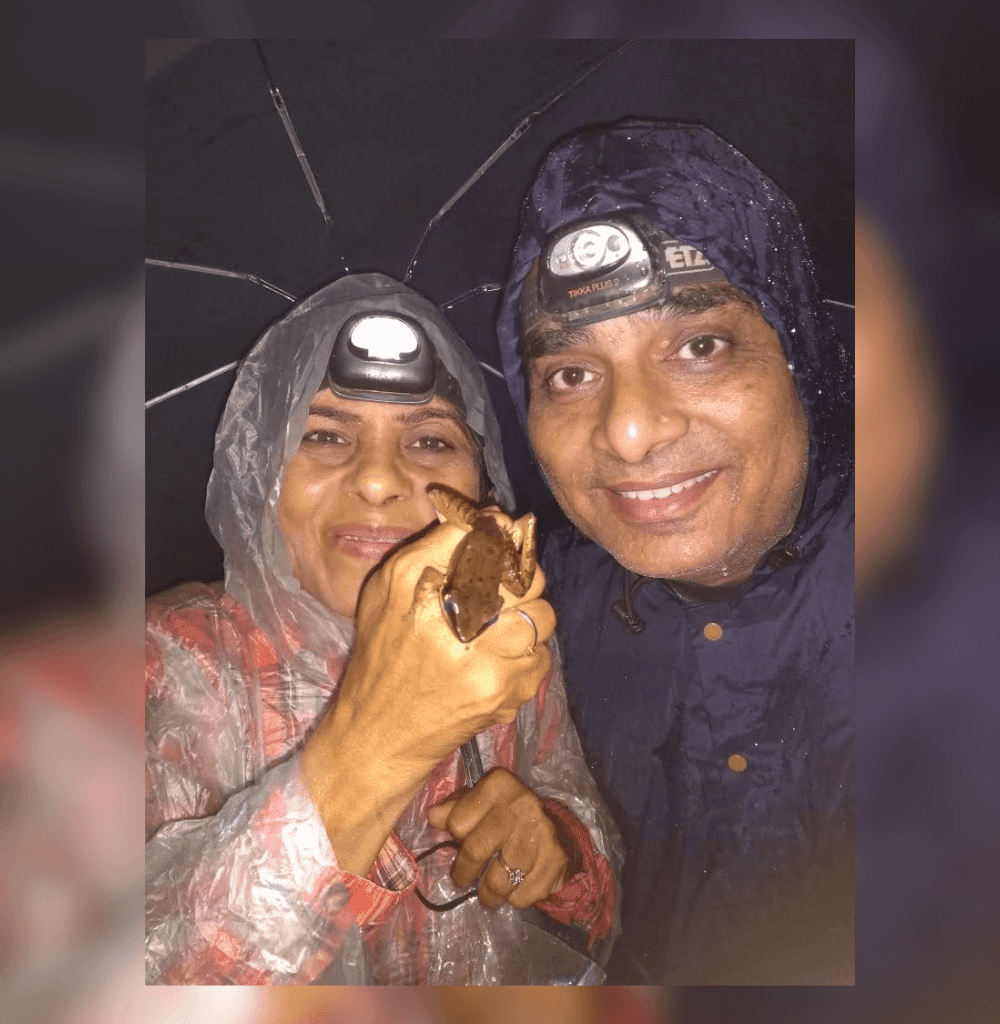
An above average student in Class 10, Science and Mathematics were her subjects of interest for further studies. It led her to take up BSc Zoology (Honours) course in Hans Raj College, Delhi University, in 2008. While at college, she honed her interest in biodiversity, which concentrated more into frogs and later helped her become India’s first woman researcher to discover 50 new frog species.
Sonali did extensive field expeditions in remote forests of the Western Ghats, Northeast India, and the Andaman and Nicobar Islands during her decade-long research. Outside India, her scientific forays extended into Sri Lanka, Indonesia and Thailand. This not only made her a familiar name among frog researchers in the country, but also helped her bag the Edward O Wilson Biodiversity Postdoctoral Fellowship from Harvard University. Through it, Sonali will further her quest for the discovery of earth’s animal species.
Her field expeditions did come with self-explorations, life lessons and some adventures. As a frog scientist, not just most, but all of her fieldwork happened during the night in the heavy forests.
“When you are in remote areas for field work, dynamics are different,” she acknowledges. “There is a certain way the villagers around the forest are used to seeing a woman and when someone in field work clothing goes into the forest, there are certain challenges to beat that mentality. So, you dress accordingly (cover up as much as you can; if need be, wear traditional clothes) and more importantly try to look past that, do your job and do it well,” she adds.
All-round support
Sonali emphasises that her journey has been fruitful, all thanks to her colleagues, who played an important role in providing an atmosphere that promotes equality and safety. “As we travel around places that are mostly remote, it is imperative that those around me understand the concepts of safety. I was fortunate in finding a team that never made me feel like I am a woman doing a man’s job… Your own sense of safety and passion also plays a role in promoting such an atmosphere,” she confirms.
Apart from humans, a jungle rulebook is one of its kind. It is as risky for a man as for a woman,” she adds.
Even her family, while being as supportive as she puts it, had natural concerns each time she went on an expansive expedition.
There have been times when I had discussions with my mother on the safety parameters of my job. I remember telling her that I could easily be injured staying in Delhi as I could be in a jungle,” she shares.
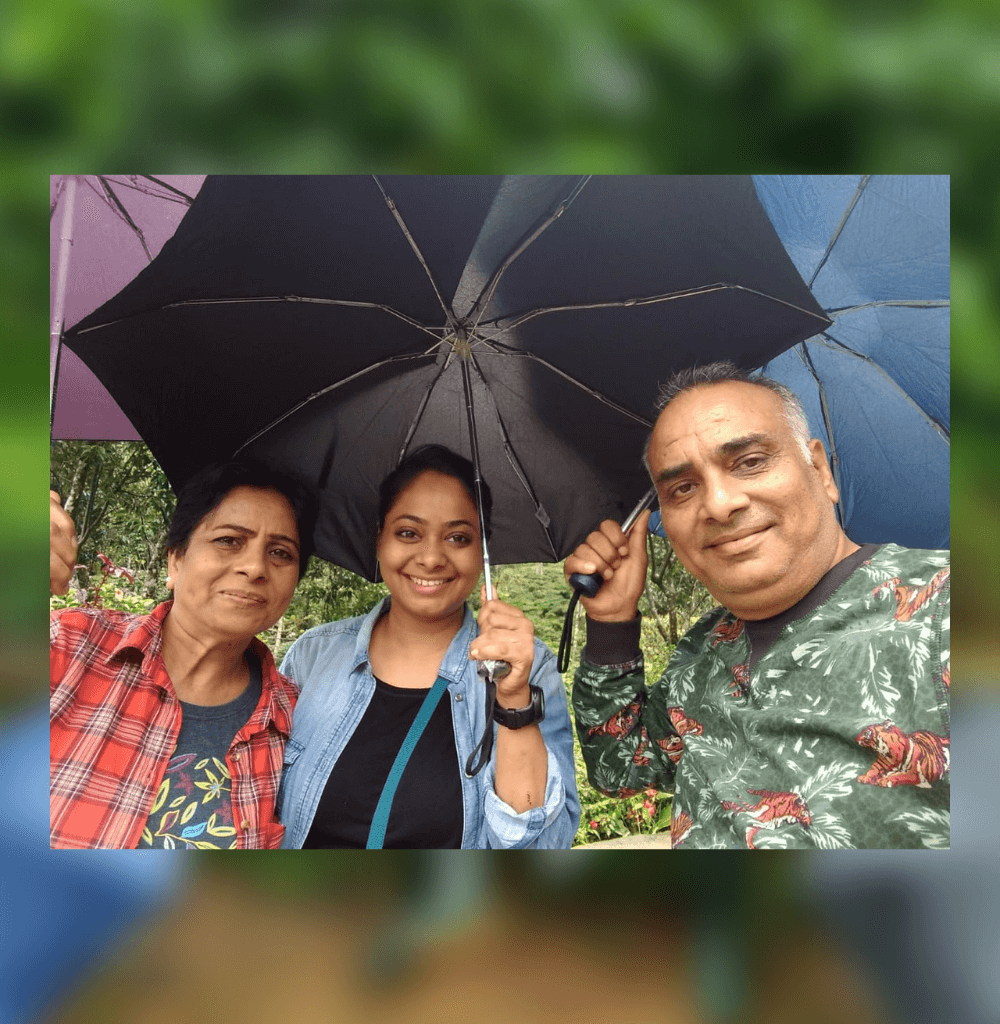
Sonali’s parents played an instrumental role in her reaching the heights she has today.
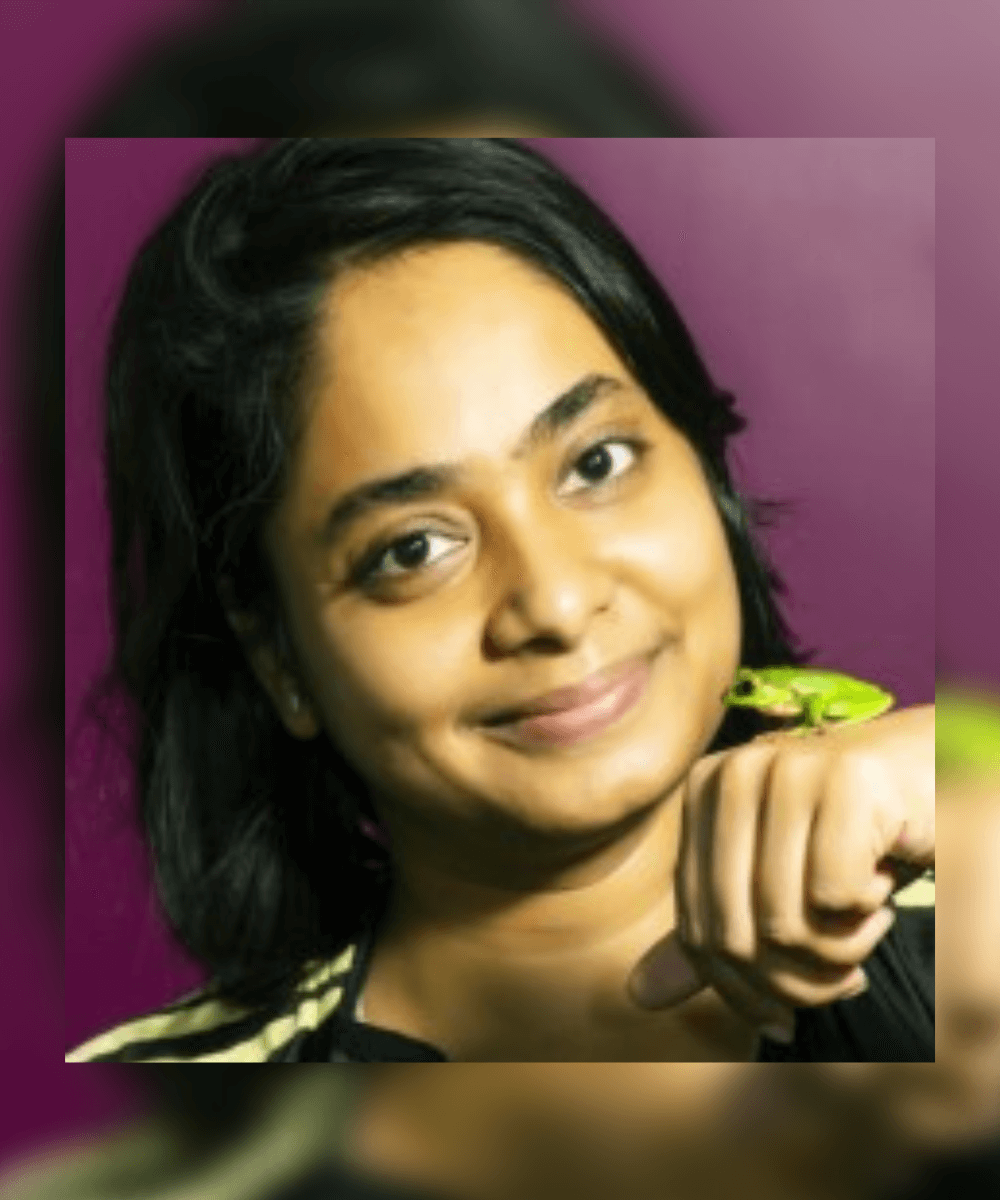
Dr Sonali Garg is the first Indian woman to have discovered 50 new frog species.
“I would rather be killed or injured by an elephant in a jungle than die in a road accident in Delhi,” she says, highlighting her determination to do the job she has chosen.
What helped her gain more trust from her family was her habit of sharing stories of work with them. “I think when they saw the spark in my eyes, I had even more unwavering support from them,” she says.
Sonali’s mother Raj Bala, a businesswoman, is all praise for her. “Even as a school student, she wished to do something big in her future career. As parents, we decided to always provide for her in every possible way… When someone posed a question about marriage, she used to reply that I have married her off to studies, and it will happen if/when it is supposed to happen,” Bala quips.
Now that she is in Harvard, I am absolutely proud of her achievements. I tell her to live life to the fullest; you have done enough for the family and home, do the rest for the society and make the country proud,” Bala adds.
Her neighbour Santosh Jhanwar is equally proud of her. “I have seen Sonali grow up. She has always been sincere and studious, besides being well behaved. She always has an eye on her career. She truly deserved the biodiversity fellowship from Harvard University,” said Jhanwar, a homemaker.
Extensive research
Frogs play an important role in biodiversity. The insect-eating species is irreplaceable as their sensitive nature quickly indicates environmental hazards in both water and surroundings. They are also an important source of medicine, including highly potent painkillers.
Sonali took her PhD from the Department of Environmental Studies of University of Delhi. Subsequently, she continued to work as a Research Associate sponsored by the Council of Scientific and Industrial Research (CSIR), Government of India.
Her outstanding discoveries include a new genus and species of mysterious frog, the details of which will be published in international platforms such as BBC and National Geographic. Sonali has described three new genera and resolved numerous century-old taxonomic puzzles. Her research largely focuses on unravelling the unique diversity of frogs, besides studying their evolutionary relationships using DNA, and biogeography to decipher patterns of historical and present-day distributions. Among many, Mysticellus, Mysterious Narrow-mouthed frog is a new genus from India discovered by Dr. Sonali. In addition, the Microhylid frog from Indonesia (Microhyla Sriwijaya) has been described by her along with Indonesian scientists.
At Harvard, Sonali will work at the Museum of Comparative Zoology (MCZ), in affiliation with the Department of Organismic and Evolutionary Biology. Established in 1859, the MCZ is a centre for research and education focused on the comparative relationships of animal life.
With frog population diminishing, bio-scientists like Sonali play a major role in taking the research forward. Her adaptive nature, fearlessness and time management skills accurately complement her attitude towards work and interest in her field subject. The Bombay Natural History Society recognised her contributions to the amphibian research and conservation by conferring her with the JC Daniel Young Conservation Leader Award in 2019.
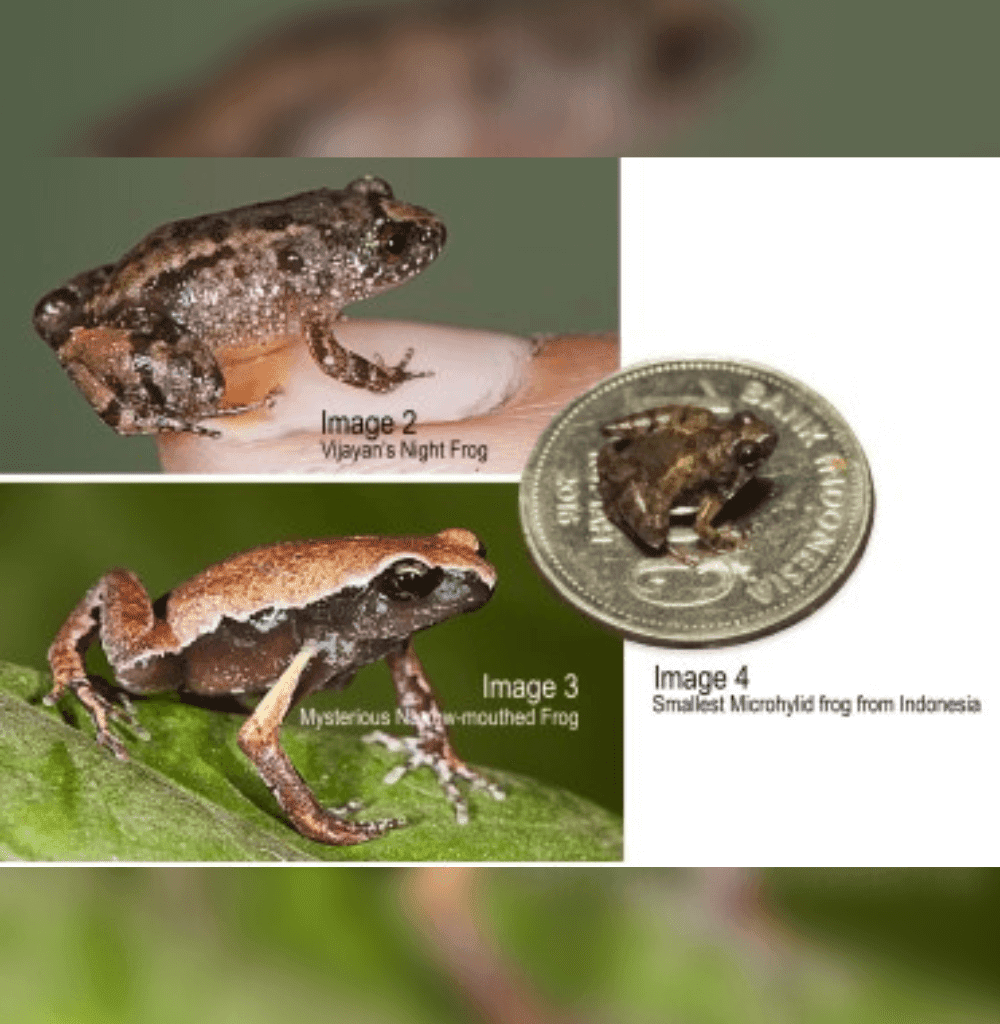
Images of frogs discovered and described by Dr Sonali (clockwise): Vijayan’s Night Frog, Microhylid frog from Indonesia (Microhyla Sriwijaya), and Mysterious Narrow-mouthed frog.
This is a niche field. Such exposures help people learn about the behind-the-scenes stories in conservation fieldwork. Bio-scientists in the country should get due recognition,” Sonali sums up.

Add a Comment